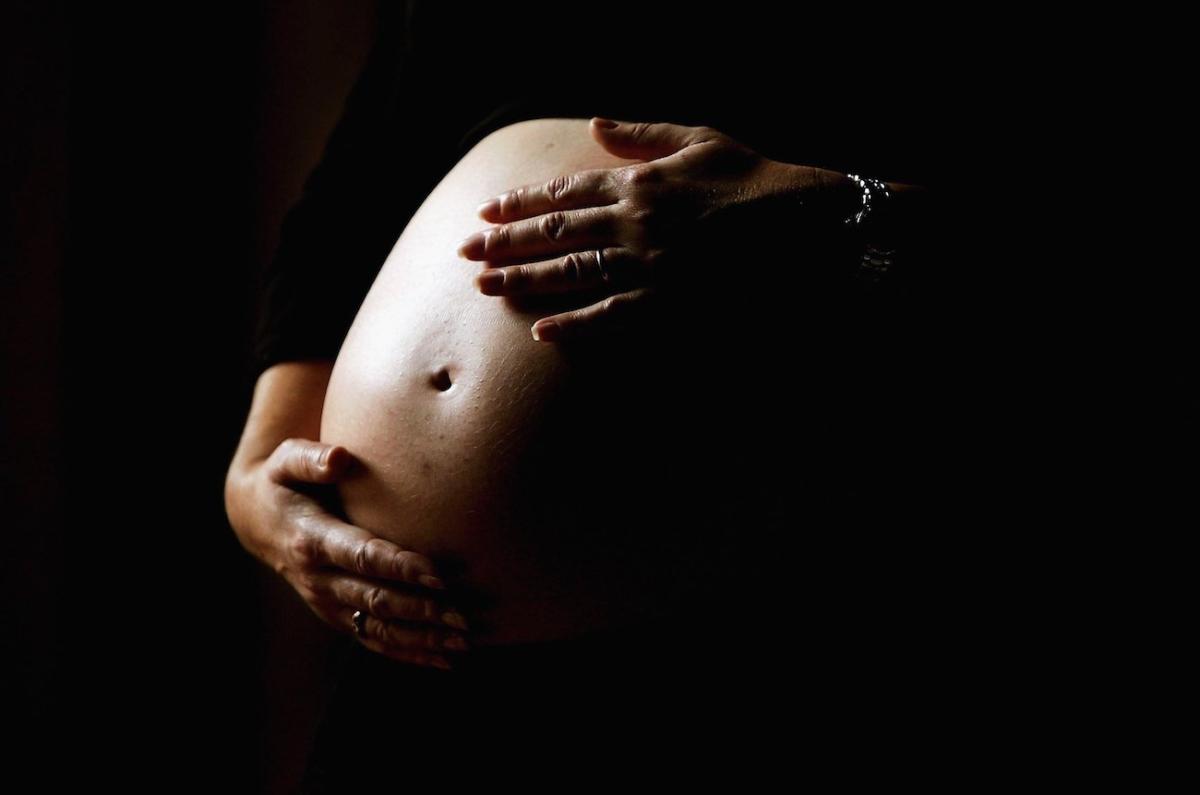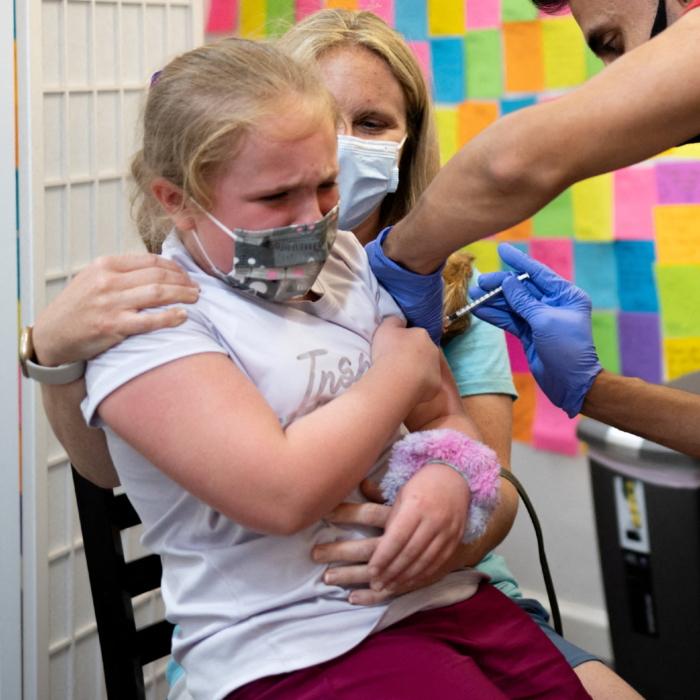Expectant mothers are increasingly choosing to have a vaccine-free pregnancy, the latest statistics show, with the health monitoring body claiming this has led to a “resurgence” of whooping cough.
The UK Health and Security Agency (HSA) said one baby died in late 2023 because of the illness, medically known as pertussis, after its recent survey into parental attitudes revealed trust in the safety and effectiveness of vaccines has plummeted.
The agency would not say if the baby or its mother had been vaccinated against the illness.
The introduction of the antenatal jab for women is credited by health officials for reducing the number of deaths from whooping cough since its introduction in 2012, although death rates had declined steeply before any inoculations were available.
Uptake of the maternal vaccine has dropped from more than 70 percent in September 2017 to around 58 percent in September 2023. In parts of London, between 70 and 80 percent of women are rejecting the jab, according to the latest figures.
Women May Not Know Jab Is 4-in-1
There is no single whooping cough vaccine licensed in the UK and the jab pregnant women are offered in their third trimester is a four-in-one injection known as Boostrix IPV and made by GSK, which is also intended to protect against polio, diphtheria, and tetanus.Also known as a Tdap injection, the vaccine may in fact leave a person susceptible to reinfection from whooping cough throughout their lives, according to a former GP who has spent 30 years looking into vaccines.
Dr. Jayne Donegan, who now works as a homeopath and naturopath after being forced out of the medical profession, told The Epoch Times that between 95 and 99 percent of people who used to die from whooping cough had stopped dying from it before the advent of the first vaccine in the 1950s owing to improvements in living conditions, such as modern plumbing.
Once the welfare state came along in 1940, meaning more people had adequate nutrition and were less likely to live in squalor and overcrowding, the vast majority of people simply “stopped dying” from previously feared diseases, a pattern that can be seen the world over, Dr. Donegan said.
The old “whole cell” vaccine against whooping cough, known to have caused brain damage in a number of children since its introduction, was superseded in the UK by an acellular jab—one not containing the whole cell of the illness—in 2004.
Dr. Donegan said, “America stopped using the whole cell pertussis vaccines in 1999, but they carried on using them here for another five years because they wanted to use up the existing stock.”
“Those same vaccines also contained mercury, and at the same time as they dropped the whole cell in America, they dropped the mercury, and we did the same thing here.”
“They say [the previous one] was a really ‘dirty’ vaccine, but they never say that at the time when they are giving a vaccine to people, only after it has been withdrawn.”
She agreed the new vaccine is safer than the old one. “It’s not completely safe but it is much safer. But it doesn’t do a very good job,” she said.

‘Eternally Susceptible to Whooping Cough’
The acellular vaccine, she said, is less effective than its predecessor because if it fails to work—so-called “vaccine failure”—people only make antibodies against the specific antigens that were in the vaccine, because it doesn’t contain the whole cell of the illness, leaving these people vulnerable to repeat infections.“You make no antibodies against the bits that weren’t in the vaccine—it’s like part of you is paralysed, leaving you eternally susceptible to whooping cough,” she said, adding that this is creating generations of vaccinated children who could be reinfected over and over again.
“They are the ones who are circulating it, because the unvaccinated ones, when they get whooping cough, that’s it, they’re immune.”
She pointed out there is a major ethical problem with giving the four-in-one vaccine to expectant mothers because many women have no idea that it contains other vaccinations, along with some of the health professionals administering the jabs.
Immunity conferred by the mother to a child is known as “passive immunity,” and this is not the same thing as having your own “active immunity,” either through infection or a vaccine.
‘Linked Epitope Suppression’
She said the Joint Committee of Vaccination and Immunisation is aware of this problem—known as “linked epitope suppression” and previously known as “original antigenic sin”—but has simply said that “more research” needs to be done.“When we started off vaccinating, the rationale was that we were going to save children from death or disability ... What seems to be important now is that you have the vaccine—that seems to be more important than anything else—not that the vaccines might not work, or the fact that it might make you ill or it might disable you, or it might make subsequent vaccinations work less—that seems to be irrelevant,” she said.
In the last cyclical “peak” in 2016, when vaccination rates amongst pregnant women were significantly higher at around 70 percent, there were 5,949 cases of whooping cough across all age groups.
Babies are more vulnerable to the illness because their immune systems are not fully developed until they are around a year old, but Dr. Donegan said that as long as the illness is properly managed, it is statistically highly unlikely to prove fatal.
Vitamin C Protocol Shown to Be Effective in US Trials
Dr. Donegan, who gives online lectures in how to manage fevers and other childhood illness, said there is a protocol which involves giving high doses of vitamin C to whooping cough patients which has been successfully trialled in the United States, but no NHS children’s hospital will try this method.The HSA told The Epoch Times it could not comment on whether cases of whooping cough were occurring in vaccinated or unvaccinated people.
The HSA said: “Before the introduction of routine immunisation in the 1950s, we used to experience large epidemics of whooping cough every two to three years affecting tens of thousands and [causing] many deaths. Our vaccine programme has been hugely successful with a dramatic reduction in cases, but the infection hasn’t gone away completely as neither infection nor vaccination can provide life-long protection.”
“Whooping cough is a disease where cases rise cyclically every few years, with the last peak occurring in 2016. The current rise in cases, which has been seen in other countries in Europe, is occurring after a prolonged period of low case numbers due to the restrictions implemented during the COVID-19 pandemic. This period of high circulation comes on top of a period of declining uptake of the vaccine in pregnant women and in young children, increasing the risk of more severe cases.”







